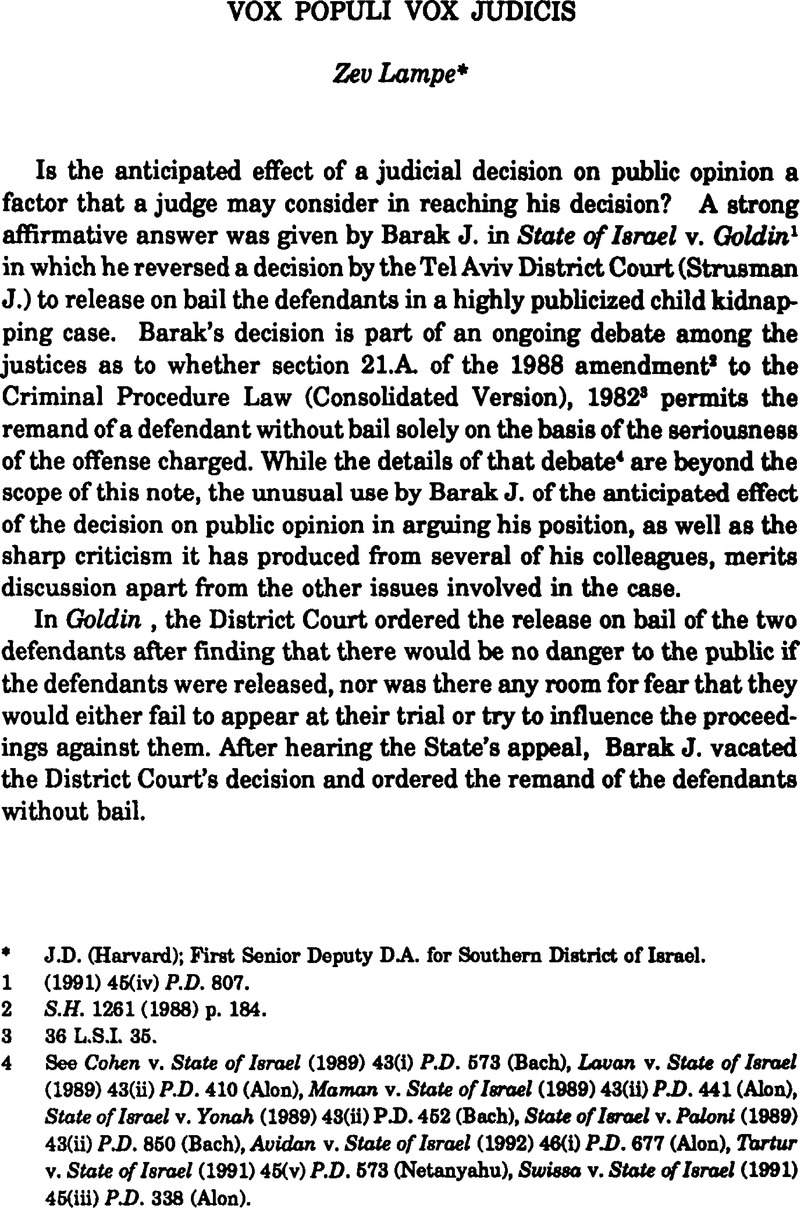No CrossRef data available.
Published online by Cambridge University Press: 04 July 2014

1 (1991) 46(iv) P.D. 807.
2 S.H. 1261 (1988) p. 184.
3 36 L.S.L 36.
4 See Cohen v. State of Israel (1989) 43(i) P.D. 673 (Bach), Lavan v. State of Israel (1989) 43(ii) P.D. 410 (Alon), Maman v. State of Israel (1989) 43(ii) P.D. 441 (Alon), State of Israel v. Yonah (1989) 43(ii) PJ). 452 (Bach), State of Israel v. Paloni (1989) 43(ii) P.D. 850 (Bach), Avidan v. State of Israel (1992) 46(i) P.D. 677 (Alon), Tartur v. State of Israel (1991) 45(v) P.D. 573 (Netanyahu), Swissa v. State of Israel (1991) 45(iii) P.D. 338 (Alon).
5 See sec. 38 of the Criminal Procedure Law (Consolidated Version), 1982, supra n. 3, at 44. The procedure for rehearing matters before a larger panel in the Supreme Court is limited to those matters heard intially before a panel of three justices. See sec. 30 of the Courts Law (Consolidated Version), 1984 (38 L.SJ. 271, at 279).
6 Goldin, supra n. 1, at 813.
7 ibid.
8 ibid.
9 ibid., at 814.
10 ibid.
11 Avidan v. State of Israel (1992) 46(i) P.D. 677; Tartur v. State of Israel (1991) 46(v) P.D. 573.
12 Avidan, at 691.
13 ibid., at 692.
14 Tartur v. State of Israel, supra n. 11, at 582.
15 ibid., at 582.
16 See supra n. 2. Unfortunately the question of the interpretation of the amendment's language has still not been settled. Since appeals against remand decisions are heard before a single judge, and there is no procedure for rehearing before a larger panel (see n. 5 above), the result has been continuing conflicting decisions.
17 The Federalist No. 81 (Cooke, , ed., 1961) p. 544.Google Scholar